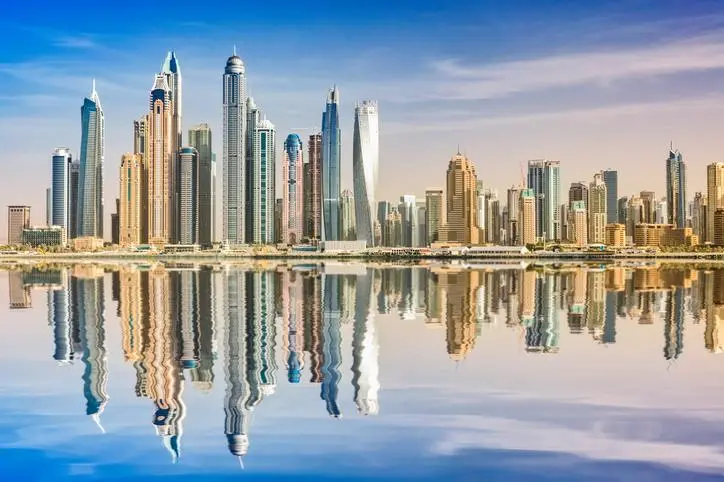PHOTO
Dubai’s real estate sector will remain in the doldrums at least until 2021, with the coronavirus likely to spur further price declines despite wide-ranging government initiatives to limit the economic impact of what could be the worst global pandemic in a century.
Dubai’s residential property prices fell for a fifth successive year in 2019. Prices then dropped a further 7 percent year-on-year in the first quarter of 2020, according to consultants JLL. As of March 2020, the average price was 929 dirhams per square foot, ValuStrat estimates, which is 52 percent below 2008’s all-time peak.
Many investors had bet that Dubai’s staging of Expo 2020 would inspire another real estate boom and its postponement until October 2021 has added to the gloom.
Yet Lynnette Abad, Director of Data and Research at Property Finder Group, believes the delay will actually benefit Dubai real estate, citing the extra time this will allow to get the site and supporting infrastructure ready.
S&P Global Ratings, which in March revised its outlook on Dubai’s top developer Emaar Properties to negative and downgraded its rating on Damac Real Estate, is markedly more cautious.
“We think the recovery process will be very long and slow,” Sapna Jagtiani, Associate Director for Corporate Ratings at S&P Global Ratings, told a webinar on April 15. “At the moment, it’s quite uncertain whether the Expo … can shore up market sentiment or even lead to a meaningful real estate recovery in Dubai.”
JLL offers a similar view, having previously expected prices to bottom out in the run up to Expo 2020.
“We’re likely to see sale prices continue their downward trajectory, albeit at a slower rate than what was witnessed in 2008-2009,” said Dana Salbak, Head of Research at JLL MENA.
To soften the economic impact, the country’s stimulus measures are worth around 256 billion dirhams ($69.70 billion). Banks can now increase their exposure to real estate to 30% from 20 percent, while minimum loan-to-value (LTV) ratios for mortgages will rise by 5 percentage points – to 80 percent for foreigners and 85 percent for nationals.
To woo buyers, developers offer incentives such as waiving the 4 percent registration fee for new properties. Mortgage early settlement fees have also been slashed.
“With the relaxation in LTV requirements, it will make a lot of people more interested in buying property now that it’s more affordable in terms of the upfront costs,” said Swapnil Pillai, Associate Director at Savills Middle East.
Savills predicts re-mortgaging will increase as homeowners take advantage of lower interest rates and other discounts, although international investor interest will wane due to travel restrictions.
“From a historical perspective, Dubai is a young property market compared to Europe,” said Pillai. “It’s still at a very nascent stage and these are growing pains the sector is going through.”
OVERSUPPLY
Oversupply is the key reason for the prolonged price malaise, with developers continuing to build despite insufficient end user demand. In 2019, 35,000 residential units were handed over in Dubai in 2019, the most ever delivered in a year, according to consultants JLL (p4).
“We believe the supply-demand imbalance Dubai has been aggravated by the effect of Covid-19,” said S&P’s Jagtiani. “The negative employment trends in some of the key sectors such as tourism, retail, as well as SMEs will weigh on demand for new property.”
Although prices remain in retreat, sales activity had been buoyant - in 2019, transactions surged 20% to nearly 42,000, the highest annual total since 2008, according to Property Finder.
“This trend continued into 2020 and sales were doing very well – both off-plan and secondary – but when the coronavirus hit, that’s when things started to slowdown,” said Property Finder’s Abad. “Once we’re past this and go back to everyday life, transactions will continue where they left off in Q1 – the demand is there. Investors are here.”
Various pre-pandemic reforms had helped bolster sentiment, including the introduction of so-called “golden card” permanent visas for wealthy expats and highly skilled foreign workers.
“There was a general optimism in the market,” said Savills’ Pillai. “The pandemic means the recovery we had initially anticipated will take slightly longer than we thought. With new project launches having dropped on a year-on-year and quarter-on-quarter basis prices should stabilise over the next 12-18 months. That’s contingent on the pandemic being contained and a return to normal activities by the third quarter of this year.”
For cash buyers, the crisis also offers opportunities to take advantage of discounted pricing and other investments.
“Getting a 7-8 percent return is quite high by international standards for residential properties,” added Pillai. “The price per square foot is still relatively low compared to other advanced markets.”
(Writing by Matt Smith, editing by Seban Scaria)
#dubai #realestate #coronavirus
Disclaimer: This article is provided for informational purposes only. The content does not provide tax, legal or investment advice or opinion regarding the suitability, value or profitability of any particular security, portfolio or investment strategy. Read our full disclaimer policy here.
© ZAWYA 2020





















